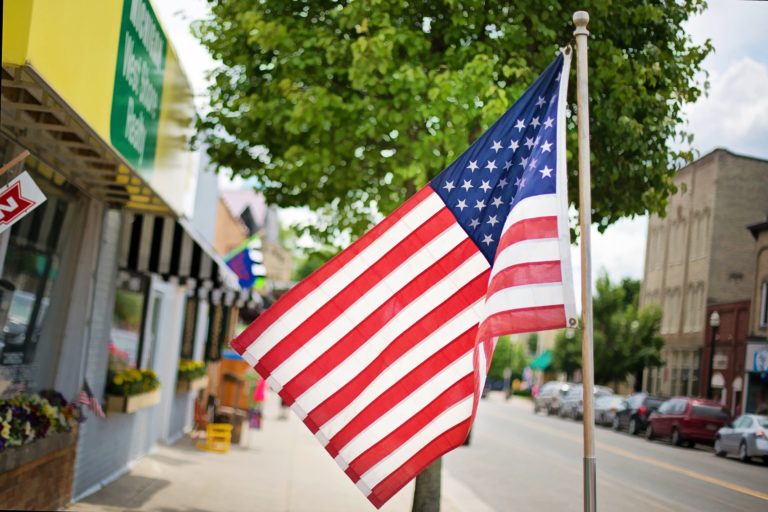How Catholics can help heal society’s wounds of division and disunity

BY ELIZABETH WONG BARNSTEAD, THE WESTERN KENTUCKY CATHOLIC
From arguments over the upcoming presidential election, to varied attitudes toward the COVID-19 pandemic, to conflicting perspectives when addressing the racial divide in the United States, the year 2020 has shown at least one thing shared by Americans, and even American Catholics: strong opinions.
But according to several Catholic pastoral leaders around western Kentucky, Catholics can – and should – take a stand to promote better civility, empathy and dialogue during this conflict-ridden time.
Sr. Suzanne Sims, OSU, doesn’t believe society’s divisiveness has gotten any worse over recent months or even years.
She says American society has drifted for many years into a “consumeristic and secularistic culture” that focuses almost exclusively on individual wants and values – which “emphasize things over persons.”
Sr. Sims, who serves as the director of faith formation at St. Pius X Parish in Owensboro, says that sadly, this “drift” has been most notable in family life.
“The virtual ‘shock waves’ from that basic disintegration of care for one another in the family – especially the weakest members – has reverberated in every direction, i.e. Church, politics, social and cultural institutions,” said Sr. Sims.
She doesn’t consider the situation to be hopeless. But it does “cry out for a reversal, conversion, or change of heart toward the life and example of Jesus Christ,” said Sr. Sims.
Zach Ault, the pastoral minister at St. Francis de Sales Parish in Paducah, says the COVID-19 pandemic was the catalyst that “tipped the scales on an already volatile situation” of disunity among the American public.
“When it comes to civility and love of neighbor, over and over throughout human history, active listening and truly striving to understand the ‘other side’ has always proven to be the best method,” said Ault.
He admitted that the Catholic Church has had its own history of pain when not being open to dialogue, such as in the Spanish Inquisition, but there have also been times when the Church “has definitely opened its ears to all sides to help understand better the direction and actions it should take.”
“We should always be trying to understand those who believe differently than us, with patience, instead of trying to force them to understand our own stances,” said Ault.
Fr. Brandon Williams, pastor of St. Leo Parish in Murray and co-coordinator of the diocese’s Office of Worship, said the “driving force” behind healthy interactions with others is in knowing that “the human person is a beautiful gift from God.”
“As Catholic Christians we better approach differing opinions and have compassion for others as being made in the image and likeness of God by remembering just that: every human being is made in the image and likeness of God,” said Fr. Williams.
Catholics are called to model this knowledge in word and action, he said.
“We are Catholic, which means universal,” said Fr. Williams. “We are one with Christ our Head in his resurrection, and we are one with each other as the Body of Christ.”
This reality is the very “foundation stone” of who Christians are, and “this is the beginning point for healing the wounds of division within humanity as a whole,” he added.
Ault offered some advice when approaching an opinion that contrasts with one’s own.
“Take a genuine interest in understanding it and why it is their opinion,” said Ault. “To do this, we have to shelve our own arguments that we are so ready to jump in with, so that we are actually listening and not just waiting for them to stop talking so we can talk ourselves.”
He also emphasized not labeling a person or their beliefs, which only limits the other person to “what we think we know about them.”
Once a label is placed on someone, for example “liberal, conservative, socialist… we stop seeing their uniqueness as a child of God and simplify them to that particular label,” said Ault.
In the end, “you may still disagree, but you develop a deeper respect of that individual as a human being that has their own mind, life, experience, talents, strengths, weaknesses, and areas of expertise,” he added.
Sr. Sims said Catholics have an opportunity to lead others by example in witnessing to their “faith in God, service of neighbor, selfless sacrificial love and attention to the common good.”
“We were born into community, we need community, and it needs us,” said Sr. Sims. “Life lived in the care of others is a life fully lived.”
Sr. Sims recommended offering more words of “encouragement instead of words of criticism or self-righteous judgment,” and listening to “all sides” of the news; to the “issues, and not so much the person providing a message.”
Ault said that as Christians, the fundamental truth is that “we are all created equal in the eyes of God.”
“So as hard as it might be at times to see another’s stance and voice as of equal importance as our own, it is a truth we must wrestle with whenever we are in a situation where opinions differ from our own,” he said. “We have to remember that objective truth is something that cannot be changed by any person’s words, no matter how adamantly they are conveyed.”
“In this way we can avoid being offended, knowing that God is so much bigger than any of us and remains unchanged for all time,” he said.
Civilize It: Dignity Beyond the Debate
Sign the pledge today to civility, clarity and compassion at civilizeit.org, and learn how Catholics can form their consciences for political responsibility at faithfulcitizenship.org.
Originally printed in the September 2020 issue of The Western Kentucky Catholic.
Copyright © 2020 Diocese of Owensboro/The Western Kentucky Catholic
